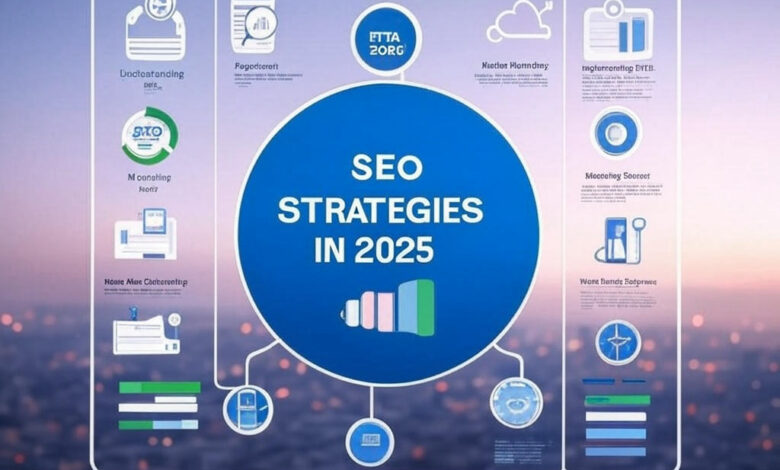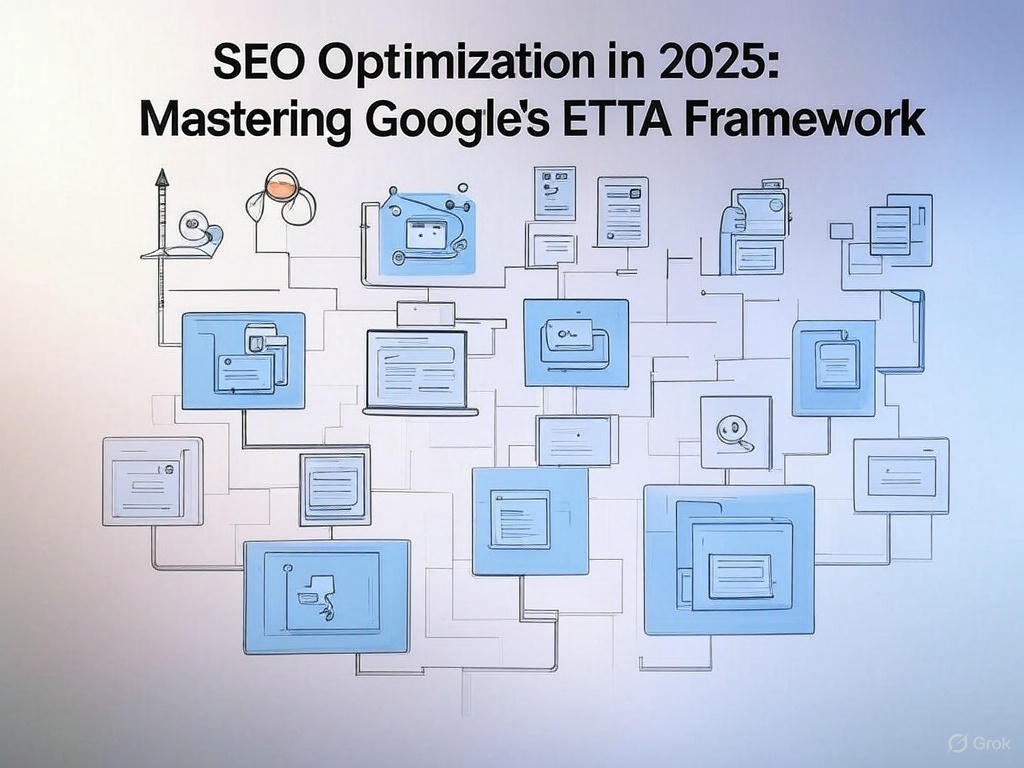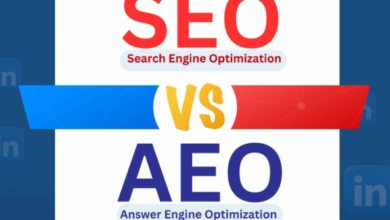
SEO Optimization in 2025: Mastering Google’s ETTA Framework
Search Engine Optimization (SEO) in 2025 is a dynamic and evolving field, driven by advancements in artificial intelligence, user behavior shifts, and Google’s continuous algorithm updates. At the core of modern SEO lies Google’s ETTA framework—Expertise, Trust, Transparency, and Authority—which builds on the foundational E-E-A-T (Expertise, Authoritativeness, Trustworthiness) principles while emphasizing transparency as a critical factor. This article explores how SEO works in 2025, aligning with Google’s ETTA guide, and provides actionable strategies to optimize your website for maximum visibility and performance.
What is SEO in 2025?
SEO remains the practice of optimizing websites to rank higher on search engine results pages (SERPs) like Google, Bing, and emerging AI-driven platforms. However, in 2025, SEO is less about gaming algorithms and more about delivering genuine value to users. Google’s ETTA framework reflects this shift, prioritizing content and websites that demonstrate expertise, establish trust, maintain transparency, and wield authority in their niche.
Key drivers of SEO in 2025 include:
AI-powered search: Tools like Google’s Search Generative Experience (SGE) and competing platforms integrate conversational AI, requiring content to be more contextually relevant.
User intent: Search engines prioritize content that aligns with what users need—informational, navigational, transactional, or investigative.
-Multimodal search: Optimization now extends beyond text to images, videos, voice, and even augmented reality (AR) experiences.
-Sustainability and ethics: Google rewards sites with transparent practices and low environmental impact.
Let’s dive into how to optimize for SEO in 2025 under the ETTA framework.
Expertise: Showcase Your Knowledge
What It Means: Expertise in 2025 is about proving you’re a credible source in your field. Google’s algorithms, enhanced by AI, can assess the depth and accuracy of your content better than ever.

How to Optimize
Create In-Depth Content: Write comprehensive guides, case studies, and tutorials that go beyond surface-level information. For example, instead of a generic “SEO Tips” post, publish a detailed analysis like “How AI Algorithms Impacted SEO Rankings in 2025: A Data-Driven Study.”
Leverage Author Bios: Include detailed credentials for content creators—degrees, certifications, or years of experience. Link to their professional profiles (e.g., LinkedIn) or past work.
Stay Current: With knowledge evolving rapidly, regularly update content to reflect the latest trends, statistics, and technologies. In 2025, outdated content risks being deprioritized.
Use Structured Data: Implement schema markup (e.g., “HowTo,” “FAQ,” or “Article”) to help Google understand your expertise and display rich snippets.
Example: A nutrition blog could feature articles written by registered dietitians, with schema markup highlighting their qualifications and citations to peer-reviewed studies.
Trust: Build Confidence with Users and Search Engines
What It Means: Trust is the backbone of SEO in 2025. Google rewards websites that users can rely on, especially in YMYL (Your Money or Your Life) niches like health, finance, and legal advice.
How to Optimise:
Secure Your Site: Use HTTPS, maintain robust cybersecurity, and display trust signals like SSL certificates.
Cite Sources: Back up claims with links to reputable external sites (e.g., .edu, .gov, or high-authority publications). In 2025, Google’s AI can cross-reference sources for accuracy.
User Reviews and Testimonials: Showcase authentic feedback from customers or clients, ideally with verifiable identities.
Avoid Misinformation: Steer clear of unverified claims. While I can’t label misinformation, aligning with factual, evidence-based content is key to earning trust.
Example: An e-commerce site could display verified customer reviews, a clear return policy, and links to third-party certifications (e.g., BBB accreditation).
Transparency: Be Open and Honest
What It Means: Transparency, the newest pillar of ETTA, emphasizes clear communication about who you are, what you offer, and how you operate. In 2025, Google penalizes sites that obscure ownership, intent, or data practices.
How to Optimize:
-About Us Page: Detail your team, mission, and contact information. Include physical addresses or verified business profiles (e.g., Google Business Profile).
-Disclose Affiliations: If you use affiliate links, sponsored content, or partnerships, clearly label them. Google’s AI can detect undisclosed promotions and downgrade rankings.
Privacy Policies: Update your privacy policy to comply with global regulations (e.g., GDPR, CCPA) and explain how user data is handled.
Content Process: Share how your content is created—e.g., “This article was researched by our team of experts and fact-checked by a third-party editor.”
Example: A tech blog could include a “How We Test Products” section, disclosing review methods and any manufacturer relationships.
—
Authority: Establish Your Reputation
What It Means: Authority measures your influence and recognition within your industry. In 2025, Google uses backlinks, brand mentions, and social signals to gauge authority, with a heavier emphasis on quality over quantity.
How to Optimize:
Earn High-Quality Backlinks: Focus on links from authoritative sites in your niche. Guest posts, collaborations, and original research are effective link-building strategies.
Build Brand Mentions: Get featured in podcasts, news outlets, or industry reports. Unlinked mentions still boost authority in Google’s eyes.
Engage on Social Platforms: While social media isn’t a direct ranking factor, consistent activity on platforms like X amplifies your reach and signals relevance.
Publish Original Research: Data-driven content—like surveys or industry reports—positions you as a thought leader and attracts citations.
Example: A marketing agency could release an annual “State of Digital Advertising” report, earning backlinks from industry blogs and mentions in trade publications.
Technical SEO in 2025: The Foundation
Beyond ETTA, technical SEO remains critical. Google’s algorithms in 2025 prioritize user experience (UX) and performance, integrated into its Core Web Vitals and beyond.
Page Speed: Optimize for sub-2-second load times using next-gen formats (e.g., AVIF images) and edge computing.
Mobile-First Indexing: With mobile traffic dominating, ensure flawless responsive design and fast mobile performance.
Voice Search: Optimize for natural language queries (e.g., “What’s the best SEO strategy in 2025?”) with conversational content and featured snippet targets.
AI Integration: Use structured data to feed Google’s AI systems, ensuring your content appears in generative search results.
Sustainability: Host your site on green servers—Google may factor carbon footprints into rankings by 2025.
Content Strategies for 2025
Content is still king, but its form and delivery have evolved:
Video and Visuals: Optimize video transcripts, alt text, and metadata for multimodal search.
Long-Form Wins: Articles over 2,000 words tend to rank higher, provided they’re engaging and relevant.
Interactive Content: Quizzes, calculators, and AR tools boost dwell time and signal quality to Google.
User Intent Clusters: Create topic clusters around core keywords, linking related pages to improve crawlability and authority.
Measuring Success in 2025
Track your SEO performance with these KPIs:
Organic Traffic: Monitor via Google Analytics or similar tools.
SERP Features: Aim for featured snippets, knowledge panels, or SGE placements.
Engagement Metrics: High dwell time and low bounce rates indicate ETTA alignment.
Backlink Profile: Use tools like Ahrefs or Moz to assess link quality.
Conclusion: Thriving with ETTA in 2025
SEO in 2025 is a holistic endeavor, blending expertise, trust, transparency, and authority with cutting-edge technical optimization. By focusing on delivering value to users, staying transparent in your practices, and building a reputable online presence, you can dominate SERPs in this AI-driven era. Start implementing these strategies today—because in 2025, the only way to rank is to align with Google’s ETTA vision while adapting to the ever-changing digital landscape.
Ready to optimize? Audit your site for ETTA compliance and watch your rankings soar!



